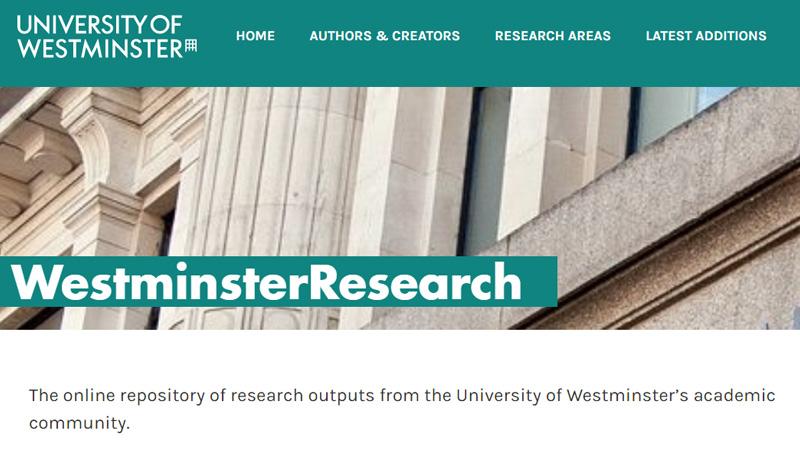University of Westminster colleagues have received funding from the Arts and Humanities Research Council (AHRC) for their research ‘Practice Research Voices (PR Voices): Scoping the Open Library of Practice Research’.

The project aims to make academic research more discoverable to all. At the moment the problem is some academic research isn’t so easy to find particularly non-text based research. The researchers hope the project will make more academic knowledge more easily accessible to everyone.
The researchers will do this by addressing a number of recommendations of the Practice Research Advisory Group-UK (PRAG-UK) reports about practice research and how it can be shared. Through their work, the researchers will be exploring three strands: repository infrastructure; metadata and the persistent identifier landscape; and creating a practice research community of practice to inform future developments.
Using open research practices and a combination of semi-structured interviews and surveys, the researchers aim to review, identify and iterate changes to a copy of the University’s research repository ‘WestminsterResearch’. This will be tested against the British Library’s repository and the Jisc Research Repository to inform the development of the necessary technical requirements for practice research repository platforms that meet the ‘Findable’, ‘Accessible’, ‘Interoperable’ and ‘Reusable’ (FAIR) principles, which can scale to other systems and preservation infrastructure. The research will also include analysis of associated IP, copyright and licensing challenges.
The researchers aim to alter existing open metadata standards (which describe a common way to structure and understand data and help systems and people to discover it) and persistent identifiers (which provide a long lasting reference to a digital resource and ensure that even if a resource moves location, it can still be discovered), which are currently focused on STEM subjects, rather than creating new and/or proprietary ones. This will make non-text-based research more discoverable.
Finally, the research aims to create a practice research community of practice to bring together disconnected discussions between different groups including researchers, archivists, curators, developers, librarians, records managers, research managers and repository managers to inform future work.
This project builds on work carried out at the University of Westminster in partnership with technology company Cayuse to develop an open access, open source, standards based repository through WestminsterResearch to capture and preserve all research created by Westminster researchers rather than solely text-based outputs. This work which originated in the Library and Archives Service is further supported by the Scholarly Communications team’s move to the Research & Knowledge Exchange Office and has been carried out in close collaboration with colleagues within the Centre for Research in Education and Media (CREAM).
Talking about the funding and research, Jenny Evans, project lead and Research Environment and Scholarly Communications lead at the University of Westminster, said: “This is a huge opportunity to build on the work we have done to change the scholarly communications landscape, to embed open research in the supporting technical infrastructure, and to recognise the value of this research, to capture it, make it discoverable and preserve it for long term access.”
The project team is led by Jenny Evans and includes Professor Neal White, Adam Vials Moore at Jisc, Professor Helen Bailey from Kings College London, Rachael Kotarski from the British Library and software developer Taylor Mudd from Cayuse. Westminster colleagues Nina Watts, Holly Ranger and Joshua Mead from the Research and Knowledge Exchange Office are also involved in the research.
Find out more about the project on WestminsterResearch.


